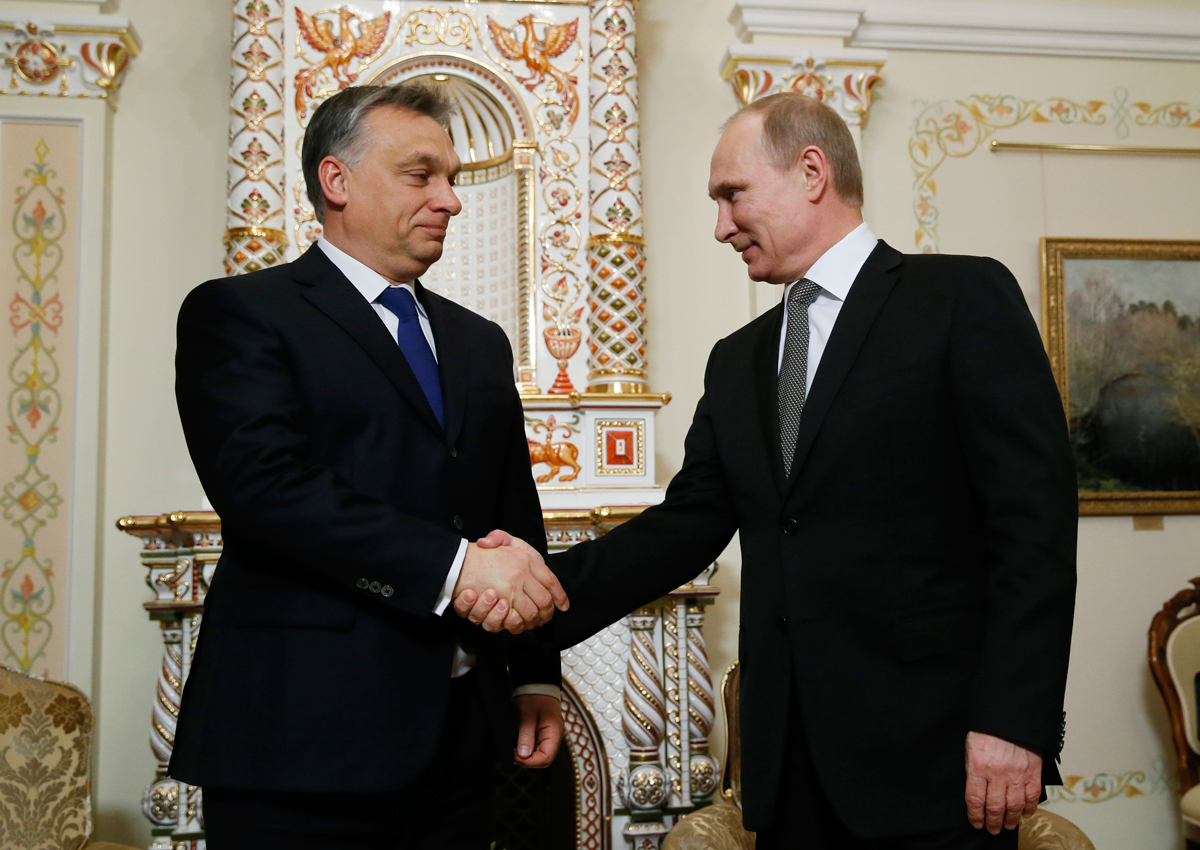The Key to the Standoff Between the West and Russia: Hungary

By Will Ellison
As the face-off between the West and Russia continues over Ukraine, a crack has been emerging in what should be a unified front against Putin’s aggression: Hungary. Hungary is a country that has historically been a European ideological battleground, which is now becoming an “illiberal democracy” under Prime Minister Victor Orban that is modeled off of Putin’s Russia. Before it’s too late, the EU 3 (Britain, France, and Germany) should bring Hungary fully back into the European system in order to improve the lives of Hungarians, strengthen European foreign policy, and dissuade other European countries from turning towards the Russian Bear nibbling away at Ukraine.

Orban, in power since 2010, has been gradually and covertly erecting a state in the heart of Europe that is frighteningly similar to Putin’s Russia. His system of “managed democracy” is practically authoritarian: elections are rigged, dissent is suppressed, the constitution is modified to suit the ruling political party Fidesz, courts are packed with loyalists, and crony oligarchs hold immense power. Kornelia Magyar, director of the Progressive Institute, a think tank based in Budapest, articulated, “He’s authoritarian…The rule of law is something that’s not very important to him. The ability to execute his political ideas is what’s important for him.”
Orban has publicly communicated admiration for Russia and other autocracies including China and Turkey, aligning with them ideologically. He argues that Western liberal democracy is declining, evidenced by the West’s inability to deal with the 2008 Financial Crisis and Great Recession. Viewing the current period as “a race to invent a state that is most capable of making a nation successful,” Orban expressed in a speech last summer that Western democracies “will probably be incapable of maintaining their global competitiveness in the upcoming decades…”
As a European fulcrum, Hungary deserves attention. Peter Kreko, director of the Political Capital Institute, a Hungarian research organization, argued that Romania, Bulgaria, and others could follow Hungary on its autocratic path. From its inception in the 9th century, Hungary was essentially an Eastern European state. Then, following wars in the 16th, 17th, and 18th centuries, it was gradually incorporated into the Habsburg Austrian Empire. As part of the Habsburg Empire, Hungary became closer to the West, since it was ruled by a Western capital, Vienna. Hungary remained part of the Austrian Empire until 1867, when it was given semi-independence through the creation of the Austro-Hungarian Empire. Austria-Hungary lasted until 1918 (the end of World War I), after which it was partitioned. Hungary then became Fascist and fell under the sway of Nazi Germany until 1945, when it was conquered by the Soviet Union. It remained a Soviet puppet state until 1989. After 1989, Hungary once again realigned with the West, becoming part of NATO in 1999 and the EU in 2004. Now, Hungary is at risk of again falling into Moscow’s orbit.
The ways that the EU 3 should counter Orban is three-fold. The first is to demonstrate the legitimacy of the European geopolitical power. This can be done by making it more evident to Russia that the West won’t be bullied over Ukraine; for the time being, the best way to handle this should be not only the continuation of current sanctions but also the implementation of additional sanctions in response to what should be considered a Russian invasion of Ukraine. Moreover, although it is easier said than done, European countries should constantly engage in debate over how to improve their economies; if the West can convince Hungary that democracies can succeed economically, this will help sway Hungary. Further, the EU 3 should reaffirm Hungary’s role in the EU and NATO through more joint military exercises with Hungary, more trade agreements with Hungary, and more diplomatic visits to Budapest, Hungary’s capital.
Luckily, there appear to be signs of hope from within Hungary. A poll from December suggests that support for Fidesz in Hungary has dropped from 38% to 26%. Hungarians also successfully resisted a proposed Internet tax in October through mass protests. Although change may come from within, the EU 3 should grab Hungary’s hand and prevent this central Central European country from falling off the edge of the West and into the abyss of illiberal, Putin-styled authoritarianism.
Will Ellison ’18 is in Davenport College. He writes on all things related to the European Union and its international position. Contact him at william.ellison@yale.edu